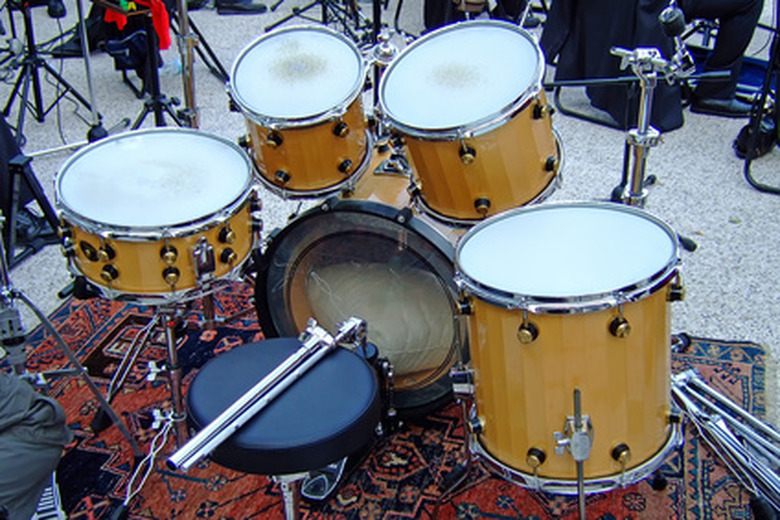How To Make A Room Soundproof With Common Everyday Household Items
Things Needed
-
Thick carpeting
-
Blankets
-
Heavy drapes
-
Quilts
-
Couch cushions
-
Pillows
-
Mattresses
-
Drill and drill bit
-
Heavy-duty screws, at least 3 inches long
Musicians are among the most common people who need to worry about soundproofing a room at home, and this can be difficult without professional materials. However, these materials are expensive and sometimes hard to obtain. You can use household items to soundproof a room partially, but it won't be completely soundproof without items that are specifically made for that purpose. Since soundproofing means increasing the bulk of materials between you and outside sources of noise, it is important to focus on windows and points of entry, such as door cracks.
Step 1
Lay thick carpeting on the floor to reduce sound and vibration. If you don't have extra-thick carpeting at home, use large thick blankets and quilts, couch cushions or mattresses to cover the entire floor, focusing on corners or cracks.
Step 2
Stuff couch cushions or pillows into window areas, or lay a mattress up against the windows.
Step 3
Pin up heavy drapes over all the windows and walls; the thicker and heavier, the better. You can also use blankets, quilts, towels and anything else that can cover a wall. Adding more layers will always help make a room soundproof because it creates more substance to absorb the sound.
Step 4
Repeat this process with the ceiling if possible. It is best to completely cover every surface in a room to soundproof it, but the ceiling may be the most difficult part to secure. Imagine the room as if you must fill it up with water, but you don't want an of that "water" (noise) to leak out. The most available way to soundproof the ceiling is with thick blankets or quilts.
Step 5
Secure couch cushions or pillows in the upper and lower corners with screws through the edges. This helps create a rounded area for the noise to bounce back off and helps reduce echo.
Tip
While this method with household items can help reduce noise, it is not intended to completely soundproof a room; professional materials, or even store-bought items such as drywall, are more beneficial.
